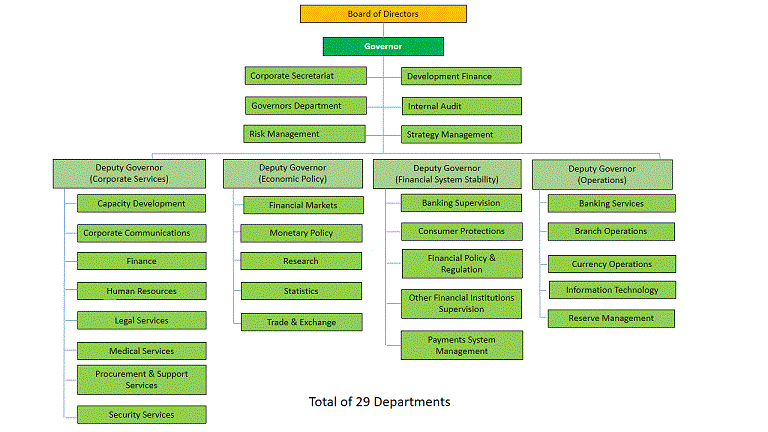CBN Loan 2024 Requirements Guidelines – N500M to 50 million

There are a number of ways to secure a CBN loan for your business. Typically, the CBN does not lend directly to individuals but through participating financial institutions (PFIs).
PFIs are mandated to evaluate applicants’ creditworthiness and approve or disapprove of loans. Depending on the scheme applied for, loan terms may vary, but most come with low interest rates and long loan tenors.
CBN Loan 2024 Requirements Guidelines
CBN Loan 2024 is a program that provides financial support to young entrepreneurs with business ideas. The program is a great way for young people to turn their dreams into reality. However, there are some things you should know before applying. First, you must be a Corper and have a good business plan. You should also have the necessary collateral to secure a loan. If you are not credit worthy, you will have a hard time getting a CBN loan.
The GSI guidelines are aimed at reducing non-performing loans (NPLs) in the banking sector, facilitating an improved loan repayment culture and monitoring loan defaulters across Nigeria’s banking industry. To be a Participating Financial Institution under the GSI, an institution must have duly registered with NIBSS and meet minimum IT infrastructure requirements. It must also sign a GSI Master Agreement with NIBSS and transmit a copy to the Central Bank of Nigeria.

The GSI policy will also require a participating institution to monitor the debtors’ accounts to identify any erroneous transactions or activities that are in breach of the terms and conditions of the GSI. It will also require the Managing Director/CEO of the Participating Financial Institution to routinely update the Board on the use of GSI and its impact on the NPL ratio.
GuideliGuidelinenes by the Central Bank of Nigeria
The Central Bank of Nigeria is the apex monetary authority and a key driver of the country’s financial sector. Its major functions are to control and administer monetary policy, promote financial stability and efficiency, act as banker of last resort and provide economic and financial advice to the government.
The CBN has several intervention funds that can be used to fund specific sectors of the economy. These funds are often targeted at industries that may have difficulty accessing finance through commercial banks. They also tend to have longer repayment periods and lower interest rates than standard loans.

One such fund is the MSMEDF, which aims to support small and medium-scale enterprises (SMEs) in the agricultural, manufacturing, services, and other sectors of the economy. The fund can be used to finance equipment purchases, hire staff, and cover operating costs. It can also be used to expand existing businesses. The fund has a maximum loan limit of 2 billion Naira per enterprise. The interest rate is 9%, and repayment periods range from 1 to 10 years. The Central Bank of Nigeria also offers a specialized loan for NYSC members, which can be used to launch their own small business.
Applying for the micro small and medium enterprise
The CBN offers several loan schemes to help small businesses grow and thrive. These loans are offered through participating financial institutions, which are able to assess a business’s suitability and creditworthiness. These institutions can also provide collateral, if needed. In addition, these loans can be used for various purposes, including working capital, expansion, and even for startup costs.
To apply for a CBN loan, you must first visit a Participating Financial Institution (PFI). These institutions include microfinance banks, non-governmental organizations-microfinance institutions, financial cooperatives, and finance companies. The PFI will then evaluate your application and forward it to the Central Bank of Nigeria. The process can take up to 6 weeks, depending on the specific scheme and the amount of funding you require.
The MSME Development Fund is designed to support the growth and development of micro, small, and medium enterprises (MSMEs). This is done through various interventions that include the provision of low interest loans with long tenors and incubation periods. Moreover, this fund supports the development of non-oil exports, as well as improve the competitiveness of the MSMEs. This is accomplished through the Non-Oil Export Stimulation Facility, which provides loans to MSMEs for purchasing raw materials.
Serving entrepreneur and SMEs
Whether you’re starting a new business or looking to grow your current one, access to funding is key. The right funding can be the difference between a successful business and one that fails. To help, the CBN set guidelines to direct low-yielding funds directly to SMEs through participating financial institutions. These guidelines vary depending on the scheme and size of your business. Some can provide loans as small as a few million naira, while others are for larger amounts.
The guidelines include the following: – SME Lines of Credit offer dedicated bank financing (often for longer tenors than are typically available in the market) to support investment, growth, and export. – Early Stage Innovation Finance provides equity and debt/quasi-debt to high-growth and innovative SMEs that can’t access private capital.
– MSMEDF Funds support investments and projects that will boost SMEs’ profitability, promote economic inclusion, and increase their productivity. Prospective borrowers can approach the Participating Financial Institutions (PFIs) of their choice and apply for this funding. PFIs will evaluate their loan applications and forward them to the CBN for approval. They are also responsible for assessing the risk of the loans they approve and disburse, and for supervising borrowers.
Read More Articles: Chinese Electric Cars Compete With Gasoline-Powered Cars in Europe and Beyond
Eligible Business types
To be eligible for a CBN loan, you must have a business registered with the Corporate Affairs Commission (CAC). The bank you are applying through will perform an internal assessment of your business and then apply to the CBN for funding. Upon approval, the bank will then disburse the funds to you. The amount of funding you receive will depend on the scheme and size of your business.
Unlike traditional commercial loans, which demand that you pledge assets as collateral, the CBN loan is government-backed and will not require you to offer any security for up to a few million naira. This makes it a great option for corps members and ex-corps who are looking to start their own businesses and become self-employed.
The CBN also offers low-interest rate loans to MSMEs to improve their access to finance. These loans are a great way to get started on a new business or reviving an existing one. They can be used for various purposes, including buying equipment and machinery. Moreover, the MSMEDF will recycle all fully repaid loans transferred to it by PFIs. This means that you will be able to borrow again and expand your business as needed.
Summary of CBN loan guidelines
The requirements for applying for a CBN loan vary according to the specific scheme you are applying for, as well as how much money you are looking to borrow. However, there are some general requirements that you should keep in mind. For example, you should have good credit and a solid business plan. You should also make sure to read the terms and conditions carefully before signing a contract with a bank.
Another important consideration is the liquidity ratio (LDR). This metric compares a bank’s total loans to its total deposits, and measures its ability to meet unexpected fund needs. LDRs are calculated on a daily basis and should be reported to the CBN.
Lastly, the collateral requirements for CBN loans also vary. Generally, they include either cash or movable assets such as machinery. Movable assets are more flexible and can be used as security for larger loans. The exact amount you can borrow depends on the size of your business and the specific scheme you are applying for. Some schemes allow for as little as a few million Naira, while others may be upwards of a billion. However, it is best to speak with the specific scheme directly to learn more about the requirements.
Read More Articles: Car Insurance in a Gig Economy 2024
Register CBN Loan 2024
The Central Bank of Nigeria has released a new directive to enhance lending to the real sector. The directive reduces the loan-to-deposit ratio (LDR) by 15 percentage points to 50 percent. This move is part of the CBN’s monetary tightening measures and is intended to address imbalances in the economy. It is also meant to boost the economy by encouraging businesses to increase production.
The loan is provided by the CBN and the Federal Ministry of Agriculture, and it aims to grow agricultural products such as cassava, cotton, maize, poultry, rice, and sorghum. It is also expected to create jobs and promote food security. The CBN Commercial Agriculture Credit Scheme has a maximum interest rate of 9% and a repayment period of up to 60 months.
It is a great opportunity for corps members to start their own businesses, and the low interest rate makes it more affordable for them. Furthermore, the long repayment period gives them plenty of time to get their businesses off the ground. Moreover, this loan is not subject to collateral, which is a huge advantage for many small businesses. The loan is available online, and applicants can check their eligibility by visiting the CBN website.
